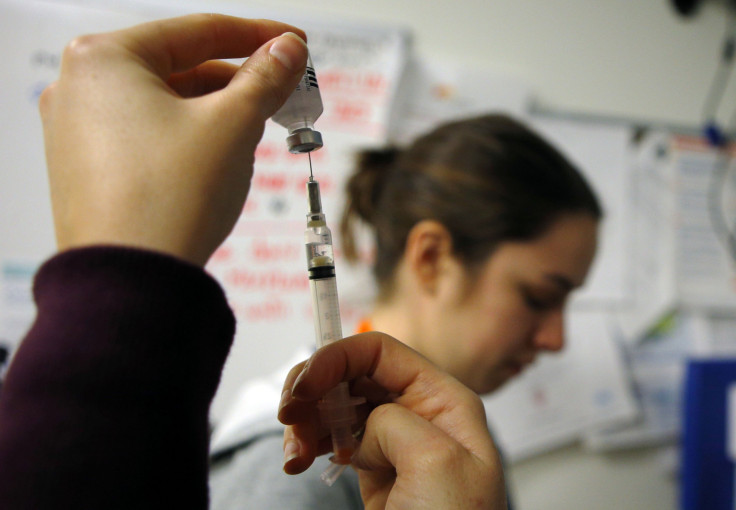Flu Shot Season 2014: Why Your Chances Of Getting Sick Just Went Up

The looming flu season is shaping up to be among the worst in 15 years, according to health officials who say an unforeseen mutation in this season’s dominant flu strain could mean more severe illnesses, hospitalizations and even deaths. The most common virus detected since October has been influenza A H3N2, the foremost strain in the three deadliest flu seasons since 2000, according to the U.S. Centers for Disease Control and Prevention.
To make matters worse, health experts warn that the flu vaccine developed for the 2014-2015 flu season will not protect against so-called drift viruses – versions of H3N2 that are slightly genetically different from the main virus – meaning the vaccine may not be as effective a shield as hoped. Half of the H3N2 viruses confirmed so far by the health agency were drift viruses.
“Whenever we have a season with the H3N2 virus we see a lot of hospitalizations,” Mary DiOrio, medical director of the Ohio Department of Health, told The Blade. “It’s too early to say what role the drift will play in the whole season but it’s definitely concerning.”
The virus’ ability to mutate and the difficulty in predicting those mutations are largely the reason health experts expect a more severe 2014-2015 flu season. Flu viruses are characteristically different each year in part because every time the virus replicates there’s a chance for it to change, whether slightly or in a big way. “Antigenic drift is when these changes happen slowly over time,” according to the U.S. Department of Health and Human Services. Because these changes occur regularly, human immune systems cannot recognize the virus from one year to the next. Developing an annual flu vaccine at the onset of a flu season involves following seasonal trends and field tests, but also a bit of guess work, health officials have said. Sometimes, it’s simply not a good match.
"We can't always predict why there is more flu one year and why it may be more severe," Lieske Giese, director of the Eau Claire City-County Health Department in Wisconsin, told WEAU. "We know that now this H3N2 version is slightly different than what the vaccine is protecting against. So there is likelihood that we are seeing more flu partly because the vaccine isn't fully protected this year."
Health officials still “strongly” recommend getting vaccinated, Joseph Bresee, head of the CDC’s influenza department, said in a statement. “Vaccination has been found to provide some protection against drifted viruses in past seasons. Also, vaccination will offer protection against other flu viruses that may become more common later in the season.” Flu seasons typically start in November and end in May.
Influenza is directly linked to hundreds of deaths and thousands of hospitalizations in the U.S. every year, according to the CDC. People 65 years and older are particularly vulnerable to the virus, with about 90 percent of seasonal flu deaths occurring in that age group.
© Copyright IBTimes 2024. All rights reserved.






















